Why is climate change important to Coventry University?
“Improve education, awareness raising and human and institutional capacity on climate change mitigation, adaptation, impact reduction and early warning”.
This project will enhance the Coventry University’s Curriculum 2025 Agenda to embed Sustainability and Social Responsibility into the student experience and to foster a rich learning community.
To find out more, read about how we are continually integrating sustainability into our courses: Sustainability in the Curriculum | Coventry University
Dr Ben Vivian – Interview summary
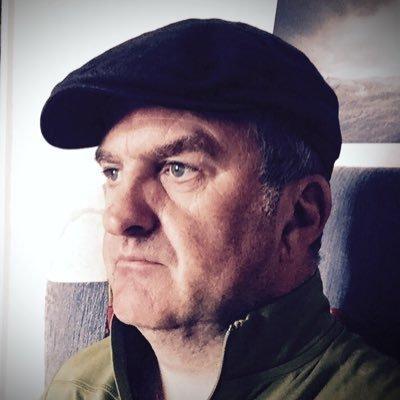
Ben talked about the private sector’s enthusiasm to embed the Sustainable Development Goals (SDGs) in contrast to previous goals (Millennium Development Goals, 2000-15) and provides a thought provoking discussion on the private sectors’ negligence to address particularly goals no. 1 and 2 (No poverty & Zero hunger).
In terms of reducing carbon emissions, Ben stated that efficiency is not a solution, but an enemy, because it makes us “destroy the planet more efficiently”. The solution is changing the annual gross emissions, which is not easy, but sustainable. Ben encourages people to lead by example by travelling and commuting less.
“The Earth does not need 10 people being perfectly environmental or living an environmental life, it needs millions of people doing it imperfectly”.
He also explained how many businesses do not have processes and policies in place that recognise the importance of environment, carbon, biodiversity, or social inclusion. Relevant examples such as the consequences of having two cars were also discussed.
From the experience of a former nonexecutive director of a charity, students might learn that “Wealthy backstreets mean healthy high streets”. Experiencing a wide variety of environments, the guest’s strongest message for students is to quickly get used to collaborating with very diverse groups of people.
The whole interview can be summarised by paraphrasing the guest’s metaphor: “In order to be good at sustainability, you need to be “a butterfly” and an independent learner – moving quickly from one area to another, being confident in a wide range of areas and being able to deal with subjects that you are less comfortable with”.
ALEX NEGOITA – CU GRADUATE, CONFERENCE SPEAKER AND ENVIRONMENTAL WARRIOR
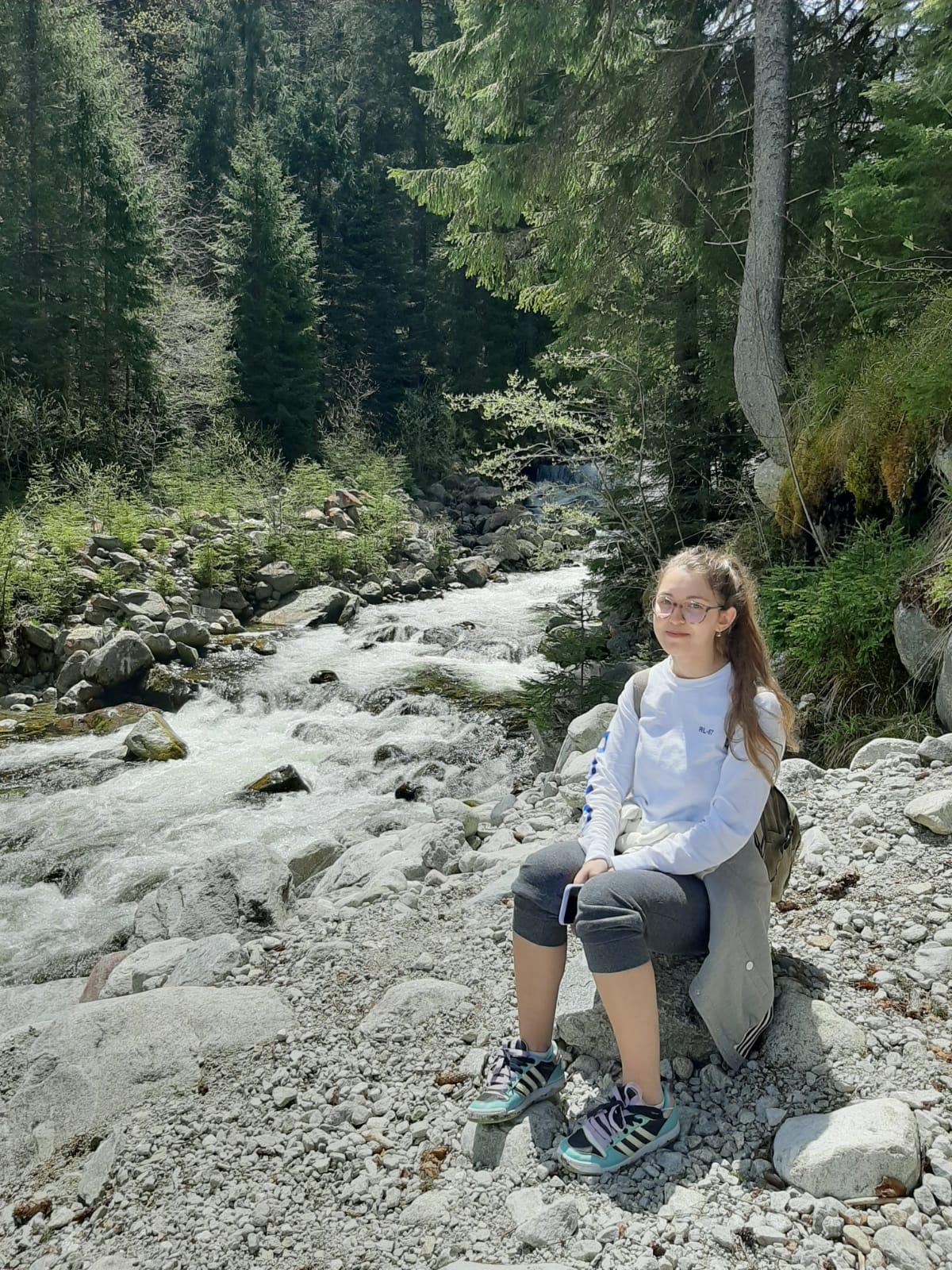
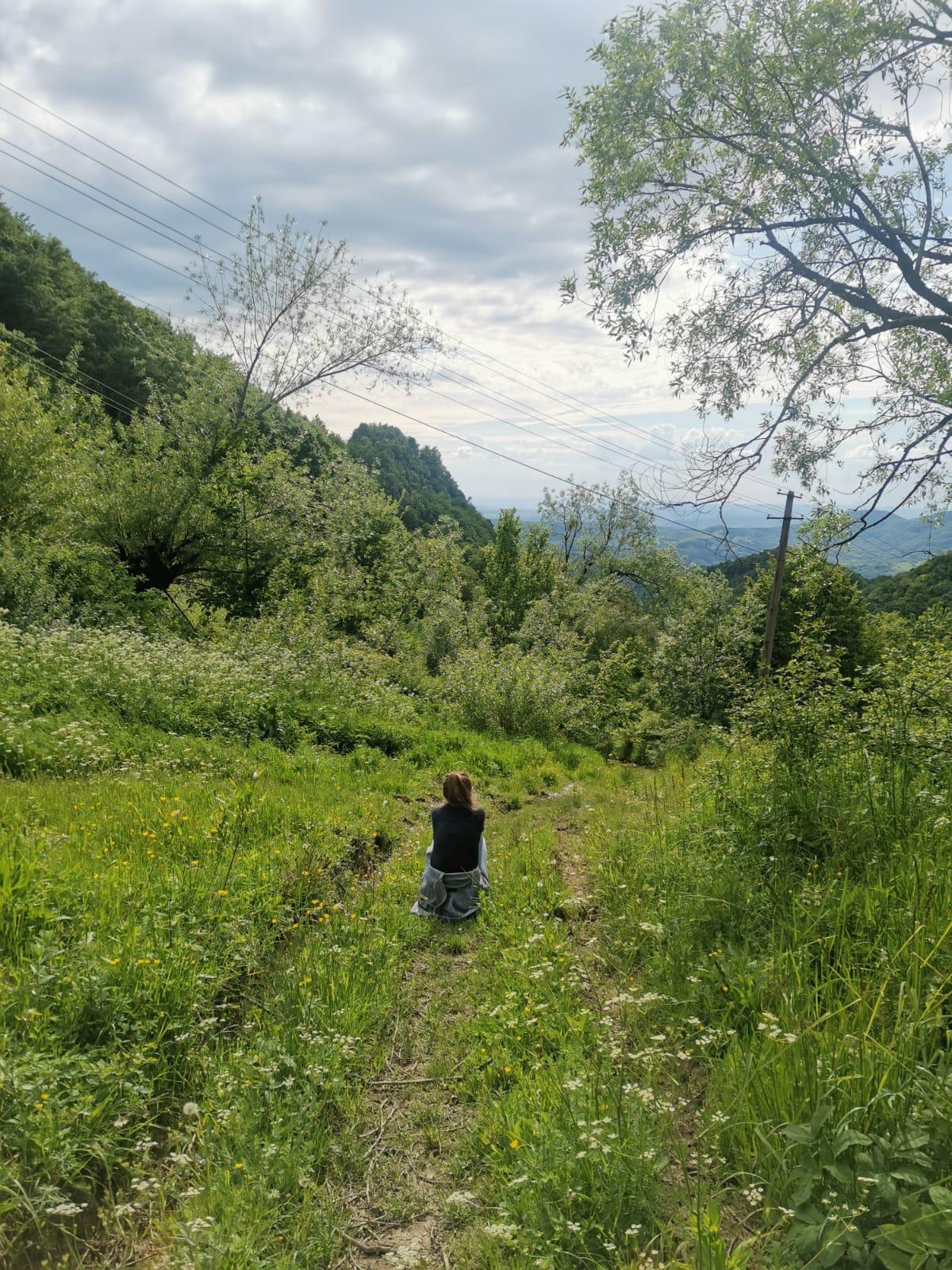
Alex has always been passionate about nature and spending time in the mountains but is only just beginning to realise that her personal values relating to responsible environmental management can also be expressed in her working life. Looking back on her time as a peer mentor lead when she was a Coventry University psychology student, she believes the agency that she held could have been used to more fully incorporate sustainability into her discipline’s discussions.
Alex loves learning and recently attended the Carbon Literacy Training that colleagues at Coventry organised in partnership with Principles for Responsible Management. She would love everyone to do her favourite quiz to better understand how our daily decisions make an impact on the planet https://edition.cnn.com/interactive/2019/04/specials/climate-change-solutions-quiz/ .
Now graduated, first class, Alex is hoping to read for a PhD next year and is spending her time working with the Curriculum 2025 team. Alex can be found developing resources which help embed sustainability and social responsibility into the curriculum. A recent example represents a nursing course – 50% of the world’s health professionals are nurses and if they can demonstrate a critical understanding of international issues affecting the development of the profession (e.g., diseases accelerated by climate change), they can play a significant role in tackling climate issues. A couple of weeks ago she was a joint presenter with Dr Caroline Wilson at an international congress “World Universities Technology Network 2021 ” Alex and Caroline were proud to be able to share how Coventry University is transforming its activities to support the Sustainable Development Goals with their presentation entitled “Helping future citizens to advance their world with the Sustainable Development Goals ”.
But still, there’s much to do, as Alex says, talking about sustainability needs to be a persistent conversation rather than a one off chat. Have a look at Alex’s November Pledge calendar on the portal for ideas of how to incorporate sustainability into your life or click the link below.
BOGDAN GAVRILUT – MASTER OF LOGIC AND SOON, MASTER OF RENEWABLE ENERGY MANAGEMENT

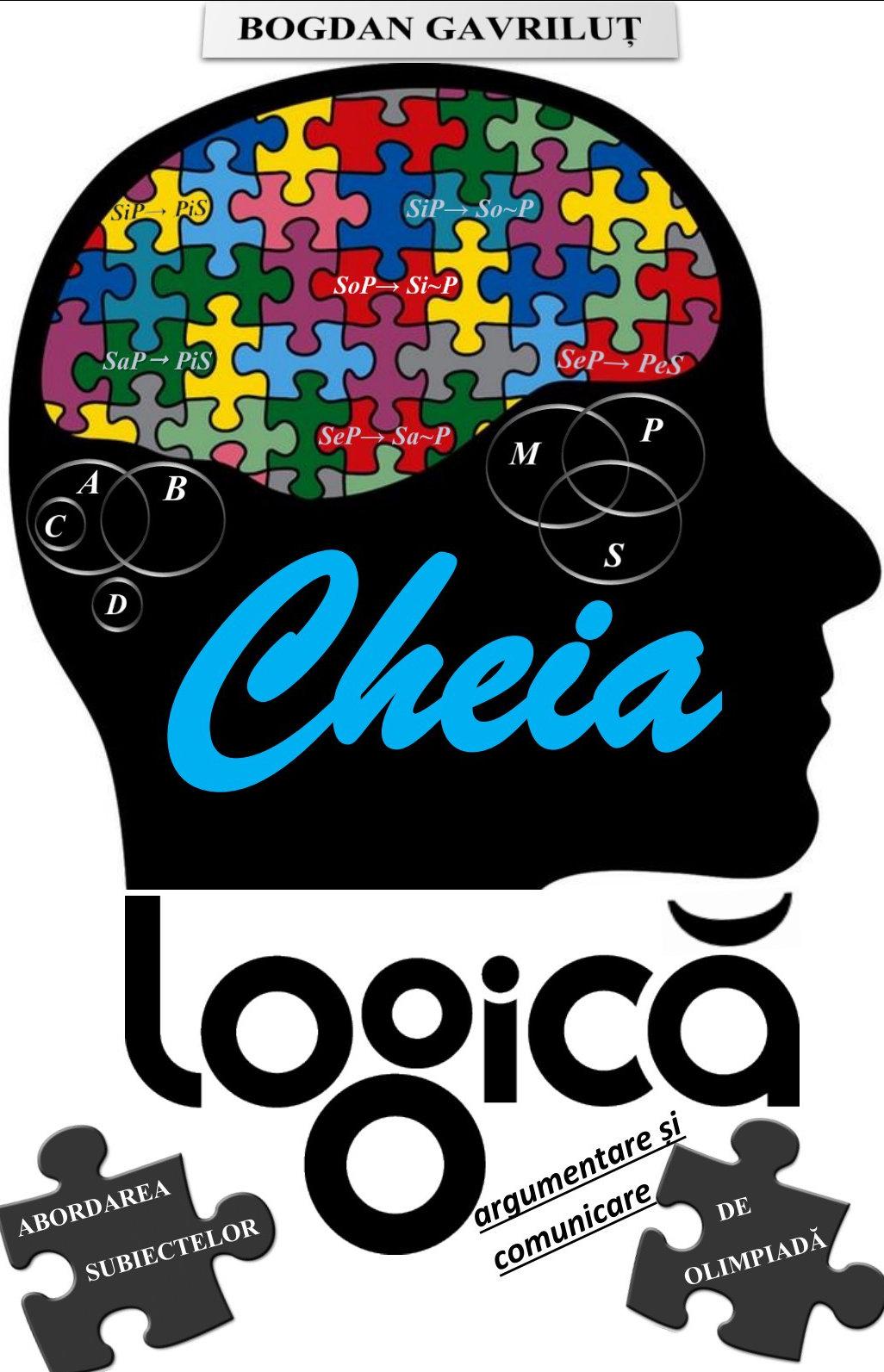
Bogdan grew up in the mountains of Romania and enjoys being surrounded by nature and engaging in logic and debate. After participating several times in the National Contest of Logic, Argument and Communication, he even wrote a book based on the logic and philosophy of Aristotle. See side bar for image of “The Key of Logic”.
Aristotle’s advice seems as relevant today as it was in 330 BC “Be a free thinker and don’t accept everything you hear as truth. Be critical and evaluate what you believe in.”
Bogdan has been at Coventry University for three years, studying BA Business Management and throwing himself into digital conferences, duties as a Student Ambassador and a sustainability themed field trip to Barcelona. He graduated with first class in the summer of 2021 and is currently working as a CU Intern. With plans to embark on Coventry University’s MSc Sustainability and Environmental Management in January 2022, Bogdan is determined to forge a career for himself in this increasingly important specialism.
He hopes to eventually see improvements in environmental protection back in his home country, Romania, but knows it will take time to address the economic, regulatory and public awareness deficits.
JO PORTER – SUSTAINABILITY LEAD FOR OCCUPATIONAL THERAPY

Jo Porter is an Assistant Course Director for Professional Suitability and Fitness Practice and an Assistant Professor and Sustainability Lead for Occupational Therapy. With industry experience in the field of Occupational Therapy, Jo has had an interest in sustainability and climate change for many years and has implemented sustainable practices throughout her professional career.
What specifically connects with Jo is the idea of being a ‘global citizen’ and the importance of our day-to-day activities that, if collectively done, can create a significant and positive impact upon climate change. That deep investment and interest in sustainable practices led to Jo picking up the position of Sustainability Lead for the Occupational therapy course with a specific focus on limiting the carbon footprint produced by the course, as well as making sure that the teaching and learning content of the course is designed so that students are aware of the importance of sustainability in the field of Occupational Therapy, and how those practices can be implemented in students’ professional and personal lives.
Jo also spoke about the challenges the Higher Education system is facing connected to sustainability, underlining the importance of the delivery modes of university courses. She pointed out how the use of online learning platforms and digital teaching and learning technologies allows universities to consume less resources e.g. reducing fuel consumption/air pollution and the use of consumables such as paper/photocopying etc. and thus be more sustainable. Furthermore, Jo mentioned how recent times adapting to new ways of working through the COVID-19 pandemic has been a great opportunity for the higher education sector to reflect on how to deliver courses with ‘minimum carbon footprint, but maximum quality of teaching’
Jo discussed about the Occupational Therapy Sustainability Group, providing the opportunity for students and academics to work towards joint sustainability goals. The group is holding a series of events in the first week of November, promoting Occupational Therapy and focusing on how the profession can promote health equity and sustainability. If you would like to find more information about the event, please see poster at the bottom.
Jo also highlighted the importance of government and other large organisations from across various sectors implementing sustainable employment practices, such as, flexible working available to all, carpool provision for work based travel and other incentives for greener travel options for commuting to work. Overall creating a culture where employers allow professionals to manage their time and resources in the most sustainable way to deliver what is expected of them.
The interviewed closed with Jo advising students on thoroughly researching the practices and values of the organisations they are interested in working for, making sure they align with their personal values relating to the sustainability of the planet and its natural and human resources. She closed by highlighting the need for sustainability-aware graduates for supporting and promoting transformational ways of living and working across all sectors that can help to address climate change and sustainability.

Interview with Selina Fletcher Head of Sustainability at Coventry University
Selina Fletcher is the Group Head of Sustainability at Coventry University. She is responsible for managing and coordinating sustainable development across the Coventry University Group and reporting on progress. Coventry University’s Environmental Management Policy defines how we control our impacts, and our Environmental Management System ensures we continuously perform and improve.
The Environment and Sustainability team also has a strategic role in planning for how the University responds to climate change, changes to legislation and local and national policy. Selina’s team works closely with curriculum and research teams to support activities and be able to view and report on our performance across the University. The team includes Jo Sharman as Sustainability Advisor, Michael Checkley as the Energy Manager, Ellie Rathbone as the Energy and Data Administrator and a part time paid student post.
Interview with Prof Benny Tjahjono
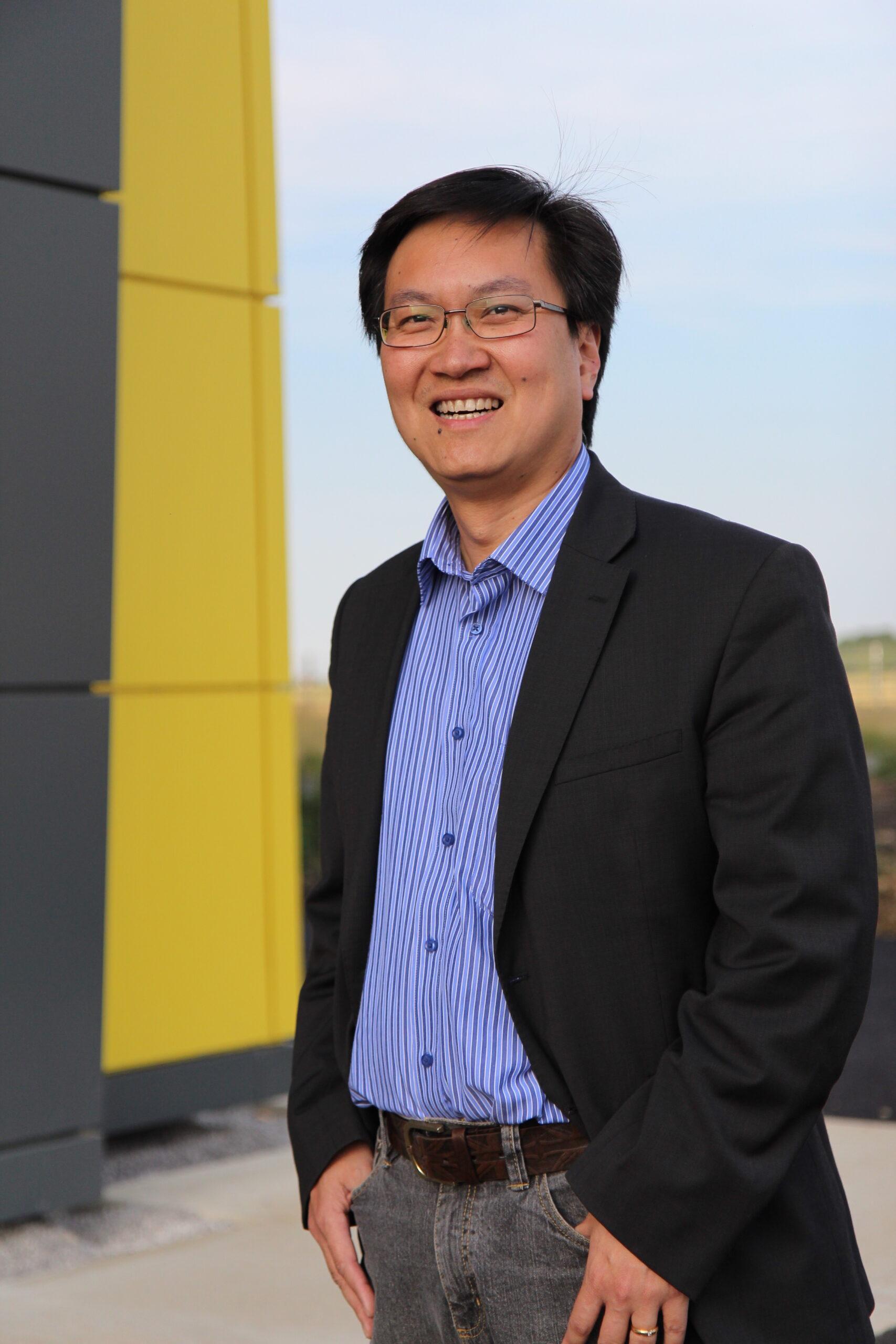
A sustainability-based discussion with our guest, Benny Tjahjono, Professor of Sustainability and Supply Chain Management, at Centre for Business in Society. The variety of examples provided impresses any audience interested in sustainability issues.
Prof Tjahjono discussed his research related to supply chain management and sustainable production (SDG no. 12). He considers that collaboration is the only way to overcome sustainability issues in the industry. One main issue he observed throughout his work, is that in organisational settings, sustainability issues are often seen as costs and extra effort. If the companies make the effort of reducing waste, they take into consideration additional, potentially high costs, which was emphasised as perhaps one of the biggest challenges that businesses face, particularly small businesses. However, if sustainability is built into their business processes, pretty much like embedding the lean thinking, then there will be minimal extra effort.
Fortunately, customers today are “greener”, and they do care how businesses are conducted. Therefore, they influence businesses to become more environmentally-focused. If companies do not demonstrate that they are green and promote sustainability, they are at risk of losing customers.
Prof Tjahjono also makes a very interesting comparison between the new generation and his generation in terms of interests in sustainability. The current generation is a lot more careful, aware, and focused on environmental issues, whereas for his generation, sustainability was just “Talk…talk…talk…”.
Innovation is a key aspect which Dr Tjahjono believes will solve the sustainability issues we are currently facing. For instance, by 2035, the UK government envisaged that the majority of the houses will switch from gas boilers to heat pumps which are considered greener. Similar changes are expected with internal combustion cars and other electrification endeavours. We also need, however, new ideas – creative, solution focuses, collaborative and innovative ideas.
DR TOM ROGERS AND THE FUTURE FOR RENEWABLE ENERGY MANAGEMENT
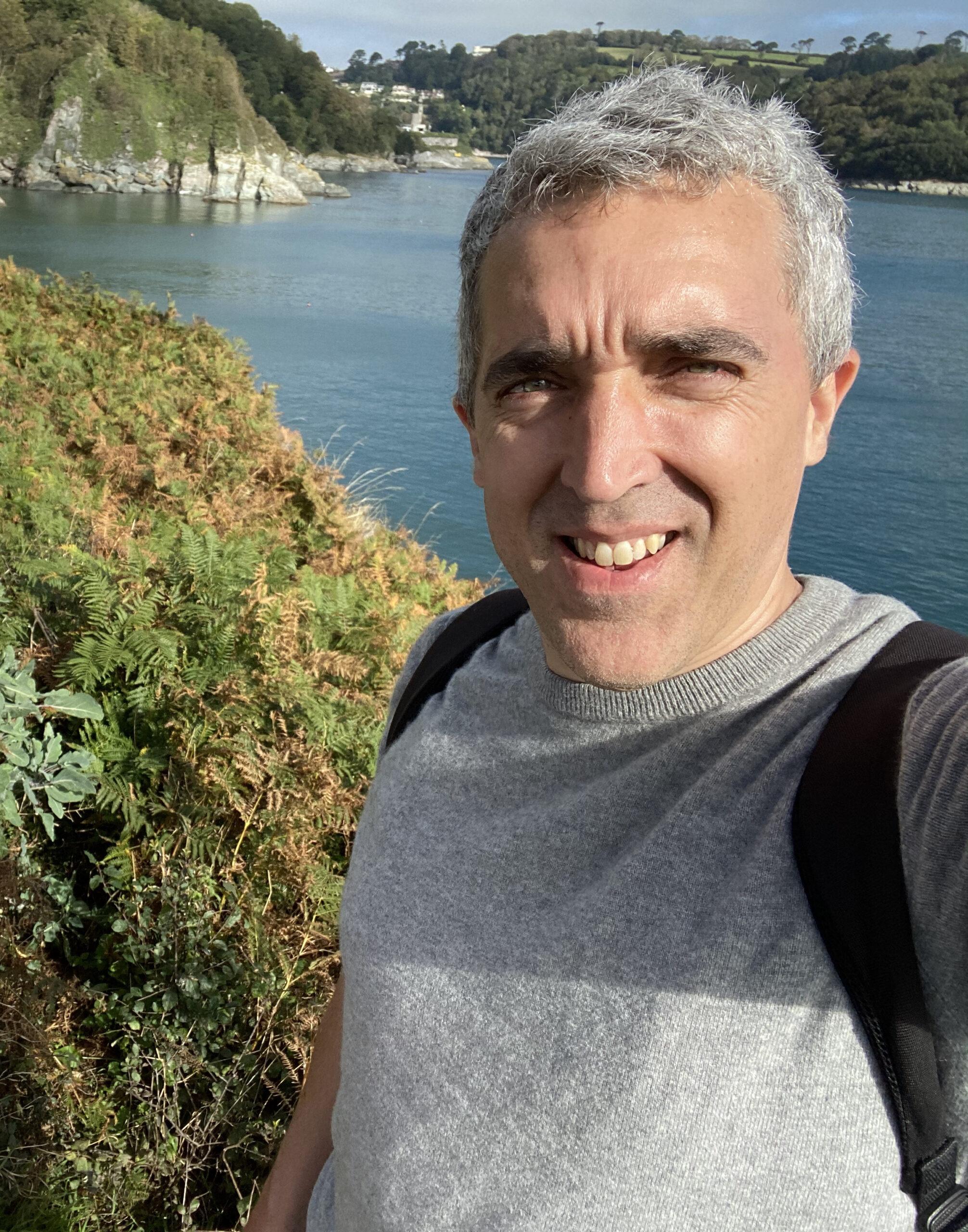
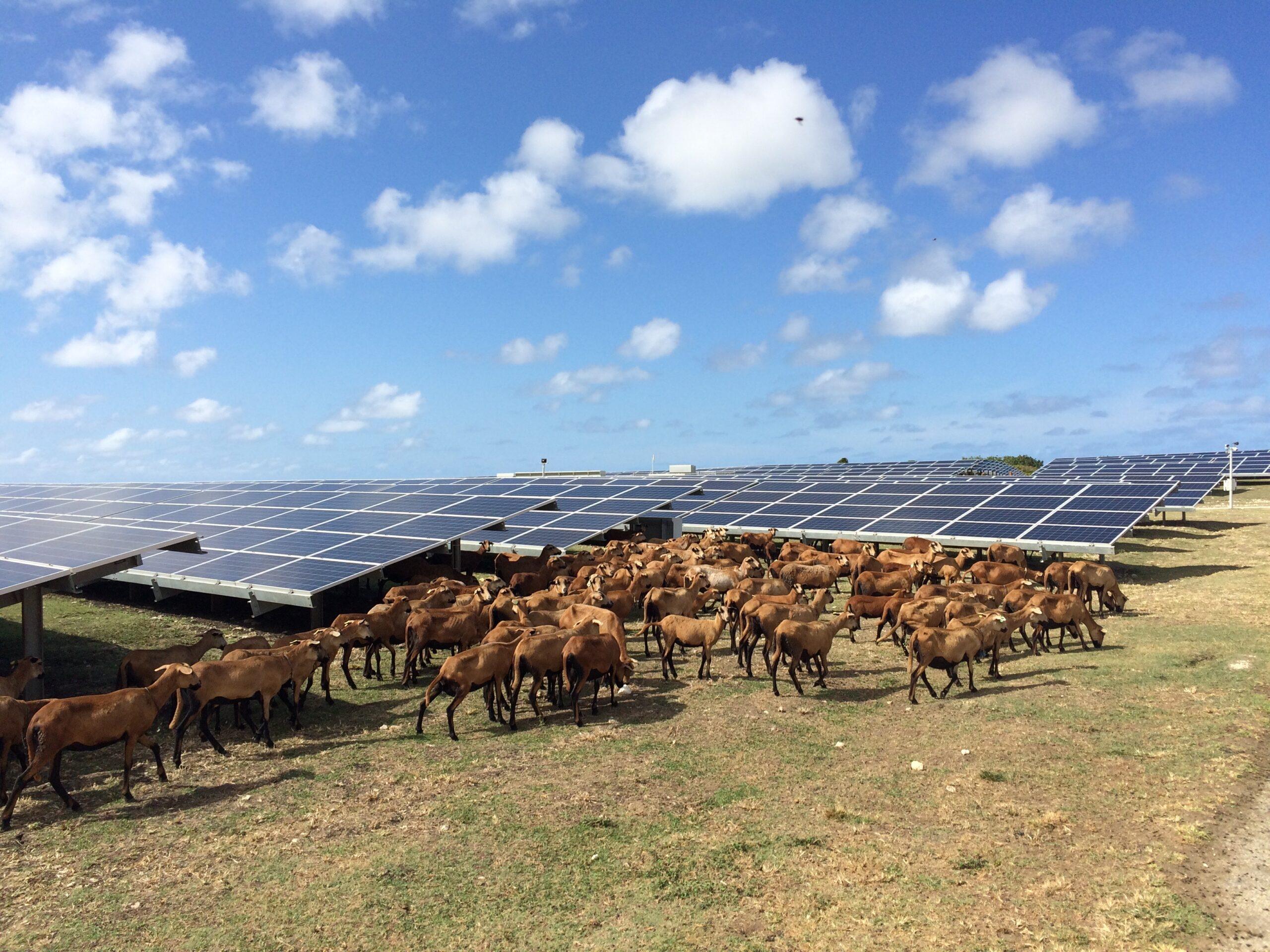
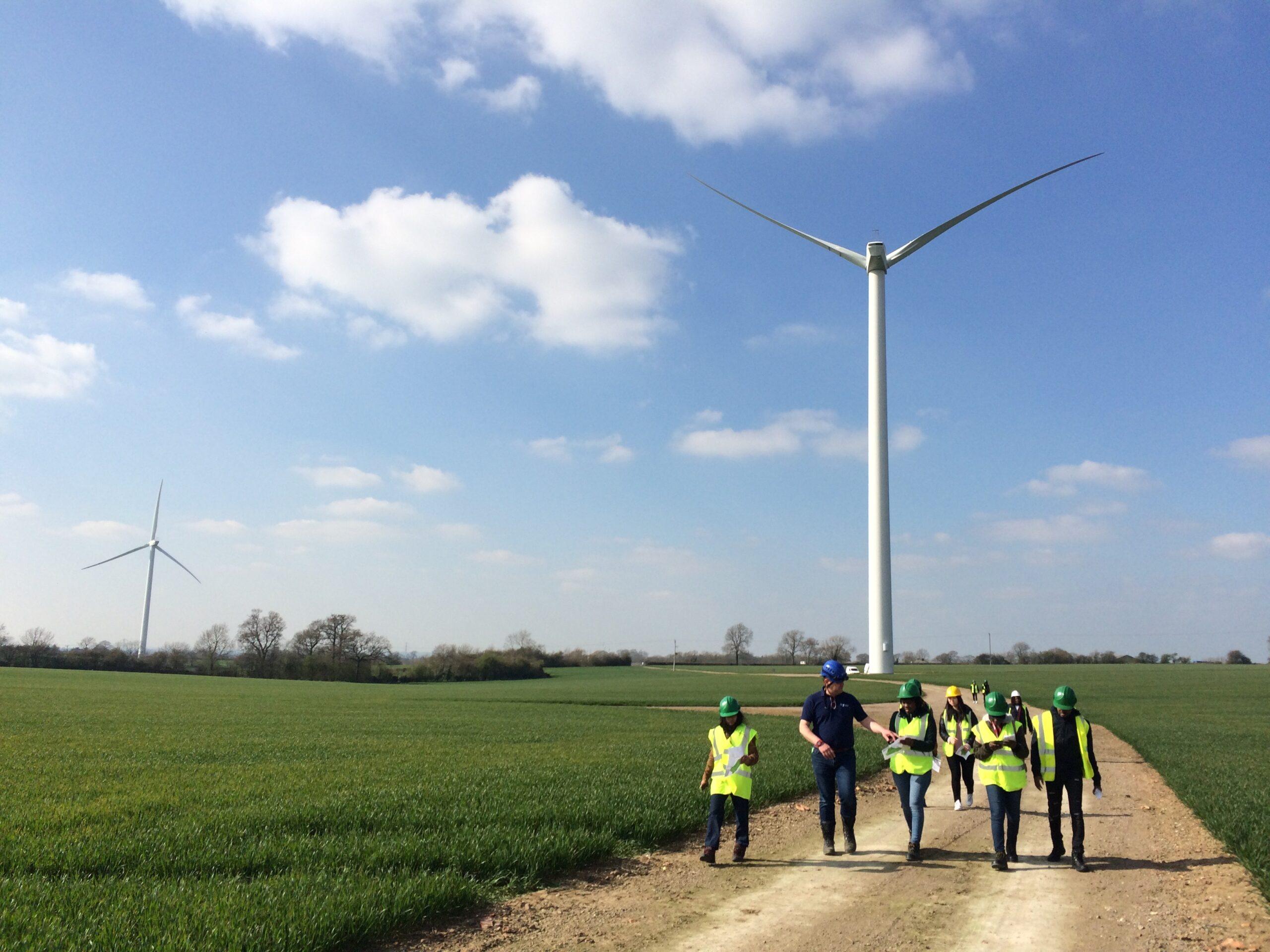
Dr Tom Rogers is the Course Director for the University’s MSc in Renewable Energy Management and Assistant Professor in the School of Energy, Construction and Environment at Coventry University.
After graduating from Warwick University with a Bachelors degree in Mechanical Engineering, Tom became a Production Engineer for a digital-out-of home hardware manufacturer, which provided him many insights into commercial operations. However, his long-held passion for renewable energy led him to read for a MSc in Renewable Energy Systems Technology at Loughborough University, followed by a PhD at the University of Nottingham, which explored the Urban Wind Resource. This research project explored the feasibility of installing small-scale wind turbines in the built environment – the answer was a resounding no!
Undeterred, Tom moved on to join The University of Nottingham’s Creative Energy Homes project, a living laboratory on their campus which investigates a range of different construction and retrofit techniques. He was then appointed as a Renewable Energy Lecturer at the University of the West Indies, Barbados. He feels so fortunate to have arrived when he did because it coincided with a willingness to transition from an oil and gas reliant economy to a renewable energy economy.
Whilst he was in Barbados, Tom had first-hand experience of seeing stakeholders come together when he joined the Barbados Renewable Energy Association (BREA). This group were instrumental in taking the country from fossil fuel dependence to a country that is targeting 100% fossil-fuel-free by 2030 – a phenomenal achievement for all involved. Tom supported this by working with different stakeholders to promote and strengthen the domestic solar PV market and by leading a study on the island’s wind energy potential.
In 2018, Tom became an Assistant Professor at Coventry University where he focuses on enhancing the Renewable Energy teaching capacity and looking at energy system transitions as a specialism.
Tom feels that the issue of climate change has yet to fully impact global energy system but the increasing cost of fossil fuel extraction and the decreasing cost of renewable energy technologies is leading to more rapid change in recent years. He highlights that, even in the UK, (not the sunniest country in the world!), solar PV will be the cheapest way to generate electricity by 2025. He also highlights that many of the technologies required to transition our global energy systems already exist. The real challenge lies in fast-tracking the rollout of these technologies.
For this reason, Tom now spends much of his time overseeing Coventry University’s MSc in Renewable Energy Management, which has key strengths in supporting the roll out of existing renewable energy technologies into wider use. Key modules ensure close ties with industry and in modelling new technologies and new applications to understand relative costs and benefits. Tom is really interested in the potential of new technologies and ideas, like block-chain, smart grids, decentralised energy systems, perovskite solar PV, floating wind turbines, storage technologies, multi-modal transport networks, looped geothermal systems, and many others. It’s through technologies like these that we have the greatest chance of phasing out fossil fuels and preventing the collapse of our planet’s ecosystems.
For more information about the MSc in Renewable Energy Management, please visit:
MATT BLACKETT TALKS TO US ABOUT PHYSICAL GEOGRAPHY, NATURAL HAZARDS AND CLIMATE CHANGE
Dr Matt Blackett is a Reader at Centre for Agroecology, Water and Resilience (Coventry University) in Physical Geography and Natural Hazards and has focused his research career on the monitoring of GeoHazards (mainly volcanoes and earthquakes) by remote sensing, using infrared sensors that can be found on NASA/ESA satellites. He has worked more generally on geographical research involving the use of computing, programming, GIS and modelling and has also begun to focus on the humanitarian side of natural hazards – in terms of risk assessment and disaster management.
Listen to him in this short conversation with Anne Callan as he gives us some insights into his work and his observations about climate change.
An example of his recent work is a conference contribution titled “Groundwater Level Variations in relation to Volcanic and Seismic Events, New Insights on Mt. Etna, Southern Italy” which was published with SS Aveni on 8th April 2021 p 76.1p.
https://pureportal.coventry.ac.uk/en/publications/groundwater-level-variations-in-relation-to-volcanic-and-seismic-
Use this link to hear Dr Matt Blackett and his colleague Dr Babatunde Anifowose, also from Coventry University, talk (in English) to Portuguese state television RTP about climate change and energy the week before COP26 opened.
Communication and Sustainability – Interview with Dr Caroline Wilson

Dr Caroline Wilson, works as a Curriculum Change Lead within Curriculum 2025, and was interviewed by Patryk Zabinski and Alexandra Negoita, Curriculum 2025 interns about her professional experience linked to sustainability. Caroline is an experienced journalist and lecturer in communication, with a PhD in communicating about sustainability. One of her current goals is to help others embed sustainability into all courses offered by the university group.
Communication is one such area. Caroline emphasised the importance of accurate communication about sustainability in all realms of the field and exemplified the strategic element of communicating about this topic. Professionals who are involved in communication strategy often work in senior level within organisations, so they need to know how to emphasise the way in which sustainability can be an advantage for businesses and promote them to stakeholders. For example, a company taking positive action and communicating it wisely, can raise the profile of the business. As such, training in the sustainability agenda is going to be a key element in communication for businesses. This way communicators can be enablers of change when it comes to the sustainability agenda. Moreover, attention was drawn to how communicators must be knowledgeable enough, so they lead by example. A notable example is Greta Thunberg, who famously sailed across the globe instead of traveling by plane to attend the Paris climate summit, COP 24.
Collaboration was also highlighted as a key enabler for change. “Without a united agreement, there will be no action” Caroline continued, “A solution created by one group and implemented on another will simply not work. Individuals and societies must come up with solutions to tackle current climate issues that are a good cultural fit. For these to be achieved, parties need to agree on targets and action”. Caroline cited several weak attempts to reduce car usage in Western societies by use of persuasion only, when users needed infrastructure changes to make cycling safer.
On a more global level, one of the big cultural challenges is to acknowledge that while some societies focus on economic growth, others place greater value on land conservation and preserving cultural heritage; and there needs to be respect for these different perspectives. Caroline feels strongly that students equipped with the capabilities to analyse complex challenges, deal with uncertainty and to respect the needs, perspectives and actions of others will enable our graduates to contribute to the well-being of their communities and the planet.
With this in mind, rather than telling others what to do, Caroline recommended that we each learn more about what part we can play in becoming enablers of sustainability and choose an activity to fit our lives.
Patrick King and Bethan Grist – CU Laboratory Stars

Patrick discussed the simplicity and the challenge of encouraging sustainability, that is, that one of the biggest sustainability challenges is about changing the individual and national mindset so that sustainability becomes a habit or instinctual approach to how things are done. There is evidence that this is happening but could be speeded up. Patrick discussed the importance in the laboratories of clear signage and effective working practices that mean that lights and equipment are turned off and are not using power when they’re not needed. Wasted power usage can really add up when there are 120 microscopes in a laboratory.
Bethan was recognised for her world leading sustainability practices when she was the winner of an international competition to encourage and celebrate efficient energy usage of laboratory freezers. Bethan won the My Green Lab Freezer Challenge – Large Laboratory category and is featured in the video link below. Bethan’s success in efficiency savings when managing large freezers was recognised by the competition. Bethan also discussed how buying reusable items can be more expensive in the short-term, but in the long-term may generate more efficient use of funds.
When thinking about important graduate skills that employers might be looking for, Patrick mentioned having an “open mind” and “the ability to think outside the box” as helpful when trying to develop sustainable ideas. Patrick and Bethan are also of the opinion that employers are looking for graduates that understand and have explored sustainability during their degree and both emphasised the concept of “Reduce – Reuse – Recycle” in all aspects of our personal and professional lives.
If you want to watch the video click link below
https://www.freezerchallenge.org/award-winners-2021.html
Bethan features at minute 6.16 – with a lovely shot of the lab behind her.
In conversation with Giulia Massera


Curriculum 2025 Intern Alexandra discussed sustainability in the fashion industry with Coventry University London Lecturer in Fashion Management, Giulia Massera. Giulia has extensive experience in industry and joined CU London two years ago to pursue her passion to share her accumulated knowledge with the future generation.
When it comes to sustainability, her passion was visible before starting on her professional career, turning second-hand clothes seemingly of no value, into new pieces worth hundreds of pounds by combining garments from different cultures and transforming them into unique products.
During her time in industry, Giulia was able to observe major changes happening both to luxury and fast fashion brands. She insightfully pointed out how the division between luxury and fast fashion brands diminished in early 2000s, with all brands producing numerous collections every year, creating issues linked to responsible production and consumption. She states that before 2013 there was the concept of sustainability, but people were not committed to it. The period before 2013 was defined by the concept of “short-term vision” including the basic drive to sell products and make a profit.
After 2013, sustainability started to become more and more adopted by luxury brands and fast fashion industry also started to chase the trend. “2013 was the starting point of a new life” Giulia says. Businesses started to act more responsibly and move away from the “we take money no matter what” mind-set. This is also a value which Giulia passes on her students to shape responsible future leaders in industry. Moreover, when it comes to teaching, Giulia points to the need of understanding skills and values of students before discussing sustainability issues of markets, and that a holistic perspective on these issues is needed when having such important conversations – from ethical principles for workers, to environmental impact of production, collaboration, and the impact of digitalisation, to name a few. These are not minor issues, or issues to be overlooked, and Giulia believes that diversity and collaboration are core strengths of a sustainable industry. However, she sadly yet realistically points out that close-minded people currently represent a problem. She is however enthusiastic that everybody will become more open to collaboration in order to find solutions to environmental problems. Moreover, every year, she actively engages students with these issues as well as industry experts. Last year, her students hosted an online event to address issues with SDG goal 10 (Reduce Inequalities). This year, her students will engage with goal 12 (Climate Action).
Perhaps the biggest challenge of the industry is satisfying everybody and making profits at the same time. A reoccurring theme seems to be that companies want to be sustainable, but this comes with costs they are not willing to pay. To tackle these issues, future graduates need a lot of resilience, adaptability, perseverance and innovation. The challenges are not easy, and are in the hands of a paradoxical generation, generation Z – “your generation cares the most about sustainability, yet the same generation buys fast fashion dresses they wear one night and throw in the bin”. In any case, Giulia is hopeful that with appropriate training, our generation (gene Z), will be successful.
The COVID-19 pandemic has brought another major change in the industry, which has sped up digitalisation and has changed customer behaviour. Customers are now more thoughtful when buying new items. In the future, Giulia sees a division between two modes of operating in fashion: a client oriented which will value more personal interaction, and a more digitalised culture with virtual catwalks. They both will have their challenges, and only graduates who have sustainability knowledge will be able to become successful.
“The sustainable way will be the only way in fashion” suggests Giulia.
